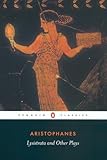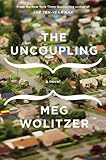It is easy to write about the arrival of desire. You can spot its presence right away: it reddens cheeks, quickens pulses, and makes a cold room hot. Discovering lust is naturally dramatic in any story, and writers from D.H. Lawrence to Danielle Steele have discovered all the tricks to make our hearts race and palms sweat. But how do you write about desire’s disappearance? When the central characters of your love story left their virginity behind long ago, what is left to discover? And when the sheets go cold, what generates emotional highs? The tension comes from what is absent, and so the story without sex is populated by apparitions, suggestions and possibilities of satisfaction whispering in the wings. Desire haunts former lovers, and becomes an embrace from which they cannot escape.

 This kind of desire-in-absentia serves as the engine of Meg Wolitzer’s extraordinary new novel The Uncoupling, which may prove a new classic for our oddly old-fashioned modern times. At the novel’s outset, Robby and Dory Lang are the model of a modern marriage, one traditionally structured yet propelled by a steady passion. Contented in each other’s company, they assumed that desire would always be there, that “they would sleep together frequently, happily, and not just gently, but with the same gruff, fierce purpose as always.” They teach in the English department at Eleanor Roosevelt (“Elro”) High School in Stellar Plains, New Jersey, and hardly register the arrival of a new drama teacher with plans for a production of Lysistrata, the Aristophanes comedy about the women of Greece going on a sex strike to end the Peloponnesian War. Though the themes of the play contribute a great deal, Wolitzer spends more time playing with the broader exploration of desire, and when a cold wind sweeps into the town and steals away the women’s lust, what ensues is a supernatural happening with devastating consequences.
This kind of desire-in-absentia serves as the engine of Meg Wolitzer’s extraordinary new novel The Uncoupling, which may prove a new classic for our oddly old-fashioned modern times. At the novel’s outset, Robby and Dory Lang are the model of a modern marriage, one traditionally structured yet propelled by a steady passion. Contented in each other’s company, they assumed that desire would always be there, that “they would sleep together frequently, happily, and not just gently, but with the same gruff, fierce purpose as always.” They teach in the English department at Eleanor Roosevelt (“Elro”) High School in Stellar Plains, New Jersey, and hardly register the arrival of a new drama teacher with plans for a production of Lysistrata, the Aristophanes comedy about the women of Greece going on a sex strike to end the Peloponnesian War. Though the themes of the play contribute a great deal, Wolitzer spends more time playing with the broader exploration of desire, and when a cold wind sweeps into the town and steals away the women’s lust, what ensues is a supernatural happening with devastating consequences.
Wolitzer’s principal assumption, even in the happy beginnings of the novel, is that desire fades as love marches forward into middle age, that even the most content of couples will find themselves wanting less of each other. “People like to warn you that by the time you reach the middle of your life, passion will begin to feel like a meal eaten long ago, which you remember with great tenderness.” Dory never had to suffer through this odd nostalgia, and so when the cold wind sneaks into her bed, she is disarmed by its presence. “It was as if the words had been supplied to her by some hidden prompt,” and what most torments her is that though her affection for Robby remains, the easy passion has vanished. Dory finds herself stuck in memories of how their love used to be, apologizing to Robby but unable to move forward. “She couldn’t tell him about wanting to shake everything up, or about what she now knew, which was that once you realize you are different from the way you used to be, then you can never be that earlier way again. Awareness changes you forever, and instead of being spontaneous during sex, you will forever be a little self-congratulatory.” This new reality, this never being able to go back to the spontaneity of sex, stops up her lust completely. “You could dress love up, but always you would have to confront desire—its absence or presence.” Robby’s desperate purchase of a Snuggie-like blanket is all that Dory has to see to really give up and give in to the despair of a sexless future. “He had bought it because they were now in a period of life in which they could use it. They were seeking warmth from someplace other than each other.”
As the spell sweeps through Stellar Plains, anxieties grow over passion stretched over too many years, sex that has become too lived-in, and too accustomed. Wolitzer manages to get the adult perspective on teenagers just right, full of half-correct sugar-coated predictions, and uses their misperceptions to kick the sexual anxiety up a notch: Robby says of his daughter’s generation, “They’re all like someone in a dream,” and it’s a statement born more out of wonder than condescension. Yet their daughter Willa is also touched by the spell, just as she begins a tender romance with the drama teacher’s son. They come together as avatars in a virtual forest, and Willa’s first sexual experiences give her a new awareness of her body and her desires. “She felt as if she were unfolding, unclasping, being saturated, falling to bits, intensely whirled around like someone blindfolded and about to smack a piñata… ‘Going the distance’ seemed a good way to think of what it would be like. It—sex, actual sex, created a distance between you and everyone except the other person. You were in a hot-air balloon, and you waved goodbye to your sweet but clueless mother and father, and even your dazed and innocent old dog.” This is the poignant, trembling awareness of teenage love and the first awakening of desire. Through Willa’s eyes, Wolitzer gives us a character who gets to experience everything fresh, and Willa blossoms through love and sex with a surprising amount of tenderness and humor. This, of course, becomes all too tragic when the chill forces her into a jaded nihilism, thinking, This is never going to last. Oh, what is the point? She withdraws from what she has just discovered, and you want to reach through the page and shake the spell off of her; no one should have to suffer this loss, especially not someone who has so much left to explore.
The spell makes its way to all the main female characters, and in each person’s cooling and retreating, Wolitzer gives specific, very real reasons to recoil from intimacy. Ruth the gym teacher is performing a dance for her handsome husband and three small boys when the cold air rushes into her kitchen and all over her skin. “She realized now that she had been overtouched; she was like a computer with a thousand fingerprints on the screen. How did anyone tolerate being touched? It was terrible, all that touching.” The revulsion sweeps in so suddenly that it literally knocks her to the floor and leaves her weeping, begging her husband to leave her alone. The alluring school psychologist Leanne, juggling three men at once, suddenly senses that “one of these days it’s going to look bad, and I’ll seem like this predatory person. And that will be terrible and humiliating.” A sad little worm of self-doubt clings to her, a reminder that “one day, not terribly long from now, she would be older, and she would be considered someone a little wild and embarrassing. A cougar, perhaps… Men could get away with sleeping with various women, but not the other way around.” And poor Ed and Bev Cutler, the long-married long-dispassionate, suddenly have the disappointment of their relationship stripped bare to them, the cold wind no longer worth fighting back. They retreat to opposite sides of the bed, no longer hoping for something better.
But even as the husbands begin to ache with longing, and the wives tears their hair out in frustration, the adults unite in a mutual fear of a new, colder world encroaching on their former, warmer ways. They wish to be more like their children, like their students, like the newer generation that might be on the verge of discovering something fresh to lust after. “You weren’t supposed to think that life was worse now; it was ‘different,’ everyone said. But Dory privately thought that mostly it was worse.” The adults fear that they are too old for passion or pleasure—and so they envy the teenagers who have everything ahead of them to look forward to, and nothing behind them to mourn. Dory sees this all too clearly:
Lucky them for the future, and the love that lay waiting. They could make whichever analogies they chose: the love that lay waiting like a web page as yet undesigned, or maybe even like a forest as yet unwalked in. A bafflingly simple forest green and virtual, or one wet and dark and real. Lucky them. She had underestimated them, and now she felt only regret.
If the language of desire is spoken with a vocabulary honed over many years, then inevitably women got tired of talking. What was there that was new to say? Wolitzer brilliantly executes the premise of the magic spell, but with feelings articulated this clearly, she doesn’t need supernatural sorcery to transport the reader. And only in a peripheral plot or two does the novel falls short. But Wolitzer’s achievement is extraordinary—finally, a novel about true yearning that doesn’t belong solely to the young. She creates an original parable without ever leaning on her source material, and explores all the life stages of desire: the long relationship that has somehow maintained its energy; the first tremors of teenage lust; the quick excitements of one-night stands; and the frustrated marriage with all its inevitable droops and disappointments. She has built for us a community defined by desire, and in taking that desire away, she turns what could be a mundane story into something mythic. Though much of what the town of Stellar Plains faces is painfully recognizable, on every page this reader found it “thrilling, it was all cracking open, and in their lifetimes, which was so terrific. How wonderful to be there for the show.”









